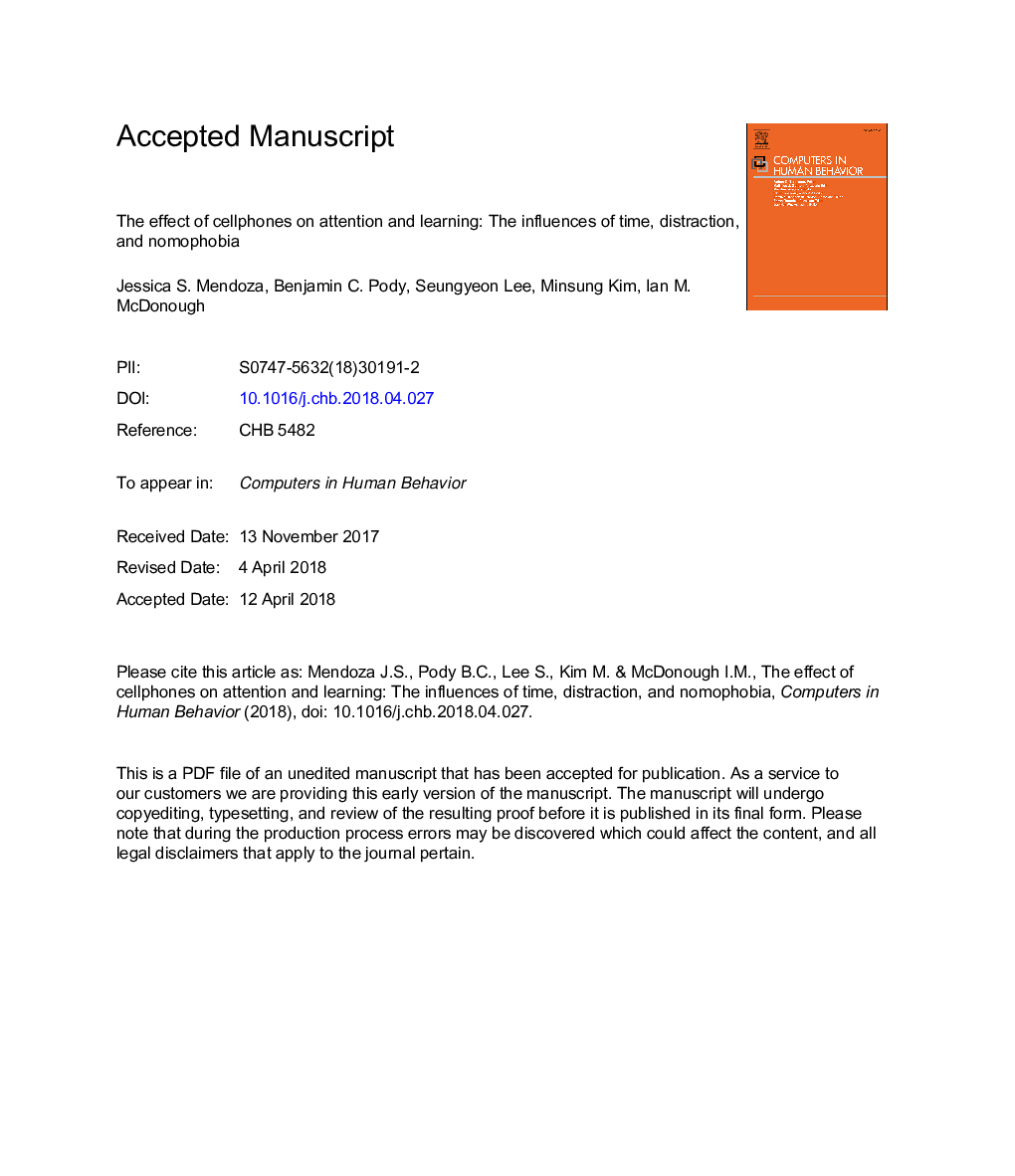| Article ID | Journal | Published Year | Pages | File Type |
|---|---|---|---|---|
| 6835820 | Computers in Human Behavior | 2018 | 42 Pages |
Abstract
Excessive cellphone use impacts attention and learning in classrooms. Given that attention declines over time, we investigated when during lecture cellphones might impair learning. Across two experiments, participants watched a 20-min lecture under different cellphone conditions (keep or remove). Groups who kept their cellphones received distracting text messages during the lecture. Participants were quizzed on the lecture. Quiz questions were divided into four segments depending on when the material was presented. Lastly, participants' nomophobia-the fear of being without access to one's cellphone-was assessed. Participants who kept their cellphone performed worse on the quiz for material presented in the 3rd quarter of the lecture than those without cellphones. Distracted participants performed worse on the test for the same material than those who were not distracted. Participants higher in nomophobia, especially on subscales having to do with losing connectedness and giving up convenience, performed worse on the quiz for material that occurred in the 3rd quarter of the lecture. Findings indicate that having cellphones in a short lecture has its largest impact on attention and learning 10-15â¯min into the lecture. This study provides novel insights into the interactions between technology and learning to help educators and students optimize learning.
Keywords
Related Topics
Physical Sciences and Engineering
Computer Science
Computer Science Applications
Authors
Jessica S. Mendoza, Benjamin C. Pody, Seungyeon Lee, Minsung Kim, Ian M. McDonough,
